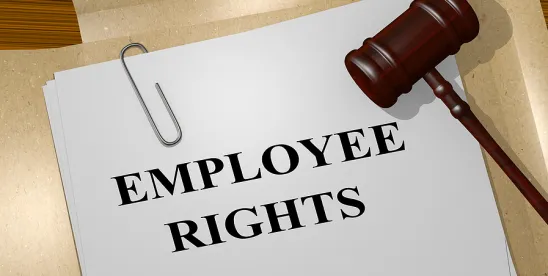- Opinion highlights the advantage of involving outside counsel early in employee discrimination claims and clearly defining the scope of multiple investigation workstreams
A federal judge in the Northern District of Illinois recently upheld a magistrate court’s finding that outside counsel’s handwritten notes, taken during its investigation into workplace discrimination claims of two former McDonald’s senior executives, were protected from disclosure by attorney-client privilege. McDonald’s had retained outside counsel when it became aware of Plaintiffs’ workplace discrimination claims in order to conduct an investigation into the workplace discrimination allegations of both executives and evaluate legal risk to the company. See Guster-Hines v. McDonalds, No. 1:20-cv-00117 (N.D. Ill. October 11, 2024) (ECF No. 530).
After concluding that knowledge of a separate pre-existing legal risk was not necessary to claim privilege over the investigation, the court turned to Plaintiffs’ claim of subject matter waiver. Defendants had intentionally waived privilege over the investigation into the claims by one executive (“Neal”) and produced materials related to that investigation. Defendants had also produced a non-privileged memorandum authored by investigating outside counsel related to the second executive (“Guster-Hines”), which included a non-legal assessment of Guster-Hines and the executive’s likely impact to the workplace environment. The court noted that both Plaintiffs and Defendants agreed that the produced memorandum was not privileged. But the court disagreed with Plaintiffs’ conclusion that counsel’s memorialization of one aspect of her investigation into Guster-Hines for non-legal personnel precluded privilege from attaching to the rest of the Guster-Hines investigation.
Plaintiffs also tried to characterize counsel’s work as a “joint investigation” concerning the same subject matter. Plaintiffs pointed to outside counsel’s process of interviewing many of the same individuals for both investigations at the same time and taking notes related to both employees in the same notebook, arguing that this approach amounted to a “joint investigation” into both employees such that waiver over the Neal investigation constituted a subject matter waiver of the Guster-Hines investigation. In rejecting this argument, the court differentiated the McDonald’s investigation from Lerman v. Turner, No. 10-cv-2169, 2011 WL 62124, at *6 (N.D. Ill. 2011), where Defendants in the Lerman matter waived privilege over an entire employment discrimination investigation led by outside counsel by disclosing one of two investigative reports related to same employee. Unlike Lerman, the court stated, “Defendants here are not selectively waiving privilege over discrete aspects of one investigation. The fact that both investigations were headed by the same person who took notes in the same notepad does not transform two distinct investigations into distinct individuals with distinct findings and outcomes into one joint investigation.” Finally, addressing the fairness doctrine, the Court determined that Plaintiffs failed to adequately explain how waiving privilege over the Neal Investigation, but not the Guster-Hines Investigation, lacked fairness.
The court’s ruling highlights the advantage of early, strategic involvement of outside counsel in an explicitly legal capacity when a company becomes aware of a legal claim. In order to ensure that documents related to an internal investigation are protected by the attorney-client privilege, companies may need to later demonstrate that legal advice was sought or provided, that the information related to the investigation was treated as confidential, and that outside counsel was directing the investigation rather than merely informed. Further, a well-organized and structured investigation is critical to protecting attorney-client privilege, particularly in situations where multiple issues or employees are being examined simultaneously or in response to specific allegations.





 />i
/>i

